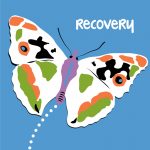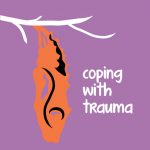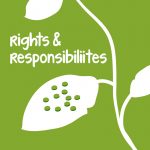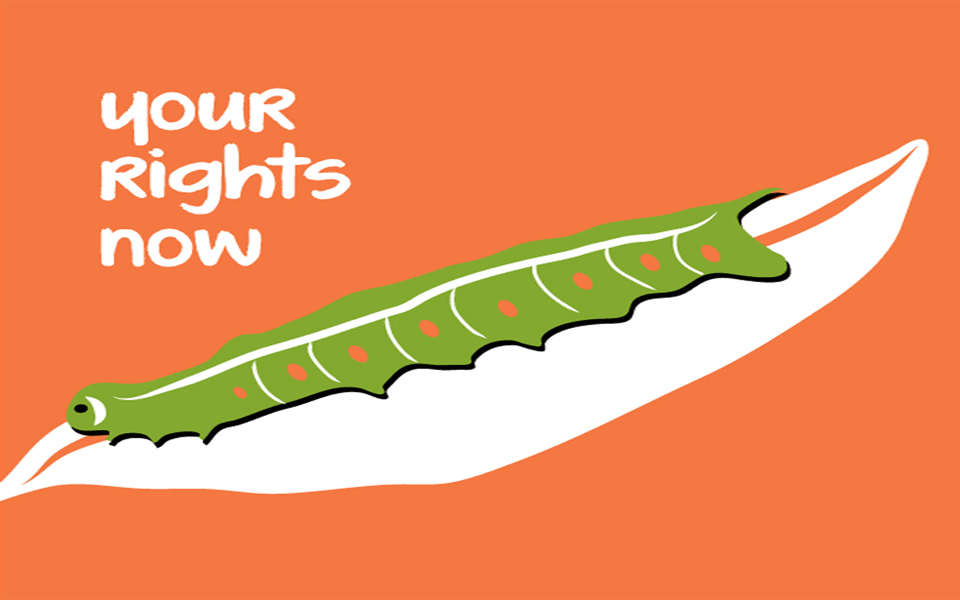Amy, one of the Youth Advisers on our We’re All Right project explains why it’s so important to uphold all young people’s rights at this crucial moment.
Content note: mental health and suicide
A pandemic is no excuse to forget about the United Nations Convention on the Rights of the Child (UNCRC). Now more than ever adults need to be reminded about the rights we have as young people and their responsibility to uphold and promote our rights at all times no matter what.
Every adult is a duty-bearer. Rights are not a choice. Rights are not voluntary. Rights are the law. If you are an adult reading this who is not aware of young people’s rights, then I would highly recommended becoming informed about the UNCRC. This is not only so you know your own responsibilities, but so you can confidently challenge situations where you recognise our rights being violated. Adults, decision makers and young people need to talk and work collaboratively to increase the attention on how our rights are going to be applied not only now but post-pandemic.
 I am passionate about young people’s rights, particularly Article 39 – the right to recovery and reintegration after trauma. Growing up as a teenager I was exposed to some catastrophic events in which I saw communities broken down, lives lost, and a stripping of nearly everything that made me who I was. What happened to me has remained with me ever since to the extent I was diagnosed with PTSD (Post Traumatic Stress Disorder) and EPCACE (Enduring Personality Change After Catastrophic Experience).
I am passionate about young people’s rights, particularly Article 39 – the right to recovery and reintegration after trauma. Growing up as a teenager I was exposed to some catastrophic events in which I saw communities broken down, lives lost, and a stripping of nearly everything that made me who I was. What happened to me has remained with me ever since to the extent I was diagnosed with PTSD (Post Traumatic Stress Disorder) and EPCACE (Enduring Personality Change After Catastrophic Experience).
The catastrophic events I was subjected to are considered to be on a similar scale to natural disasters – both of which are characterised by loss of community, loss of lives and loss of identity. One moment I was a secondary school student with the ambition of studying to either become a doctor or a vet, the next I was spending months trying to get out of a situation equivalent to a horror story. I never did fully complete my secondary education and never did obtain 5 GCSE’s, or any science GCSE’s for me to go on and achieve the dream I once had.
My mental health has improved, but it has forever been a struggle. I have attempted to take my life as a way to forget about the horrors of the torture caused to me by the maliciousness and greed of others. I got close to death a few times so I could stop constantly trying to find answers to the question why me? Why did it have to be me? I am not the person I was pre-catastrophic experience. I do not have the same dreams, ambitions or characteristics. My trauma has meant I have had to adapt to cope with extreme situations and constantly be on edge so I am prepared for the next extreme event, threat or loss. It has also changed the way I perceive or experience things. I did not receive my right to recovery and reintegration back into society after experiencing that trauma. As a child, I did not know this was my right. If I had known and if adults had stood up for my rights then I might have still been the same person and I might have actually been able to achieve the dreams and ambitions I once had.
 I do not want any other young people to go through the same process that I did. Adults need to recognise that young people have suffered a collective trauma because of this pandemic. They have all been forced to disrupt their education and stop seeing their friends. Some will have been trapped in overcrowded, unhealthy or even abusive households for months. Others will have lost loved ones and been unable to properly grieve. I want post-pandemic young people to be able to keep their sense of self and to keep their dreams and ambitions going. It is their right. As young people start returning to school, college and work, it is up to every adult – from parent to Prime Minister – to support young people to recover and reintegrate into a world that has been turned upside down. There will be another crisis for our generation if the people who were meant to stand up for us end up letting us down.
I do not want any other young people to go through the same process that I did. Adults need to recognise that young people have suffered a collective trauma because of this pandemic. They have all been forced to disrupt their education and stop seeing their friends. Some will have been trapped in overcrowded, unhealthy or even abusive households for months. Others will have lost loved ones and been unable to properly grieve. I want post-pandemic young people to be able to keep their sense of self and to keep their dreams and ambitions going. It is their right. As young people start returning to school, college and work, it is up to every adult – from parent to Prime Minister – to support young people to recover and reintegrate into a world that has been turned upside down. There will be another crisis for our generation if the people who were meant to stand up for us end up letting us down.
An important aspect of learning about rights is knowing that all rights are interlinked and related to each other. One right cannot be experienced to its fullest potential if another right is missing from the young person’s life. The only way to ensure the inequalities gap does not continue to grow after this pandemic is to ensure that all young people are receiving all their rights. And just in case you need reminding, “every child has the right to express their views, feelings and wishes in all matters affecting them, and to have their views considered and taken seriously” (Article 12). Our voices as young people are valuable and unique. Our right to have our views considered and taken seriously must be respected, even during a pandemic where we are relying on adults to provide safe accessible platforms for us to express our views, feelings and wishes. Be brave and involve us in conversations about solutions and decision making. We know our generation better than you!
 People in positions of authority need to be held to account when young people’s rights have not been implemented. As a society we need to become bolder and braver when young people are not enjoying the rights they are entitled to. In other words, we need YOU to take action and speak up. There are a few simple and effective ways where you can use your voice to create change. You can:
People in positions of authority need to be held to account when young people’s rights have not been implemented. As a society we need to become bolder and braver when young people are not enjoying the rights they are entitled to. In other words, we need YOU to take action and speak up. There are a few simple and effective ways where you can use your voice to create change. You can:
- challenge other adults when they don’t respect young people’s rights
- make a statement on social media
- write to your MP
- sign open letters and petitions
- join a peaceful protest
- join an existing campaign or even start up one of your own
Young people have rights and they need to be upheld to a high standard at all times. If there is one thing I want you to do differently after reading this, it is to use your voice now to stand up for our rights. It may be uncomfortable for your generation, but it is necessary to protect our generation and future generations from the fallout of this pandemic.
Follow Amy on Twitter @amymaryrose and keep up to date with the We’re All Right project to see how we are putting young people’s rights into practice.

